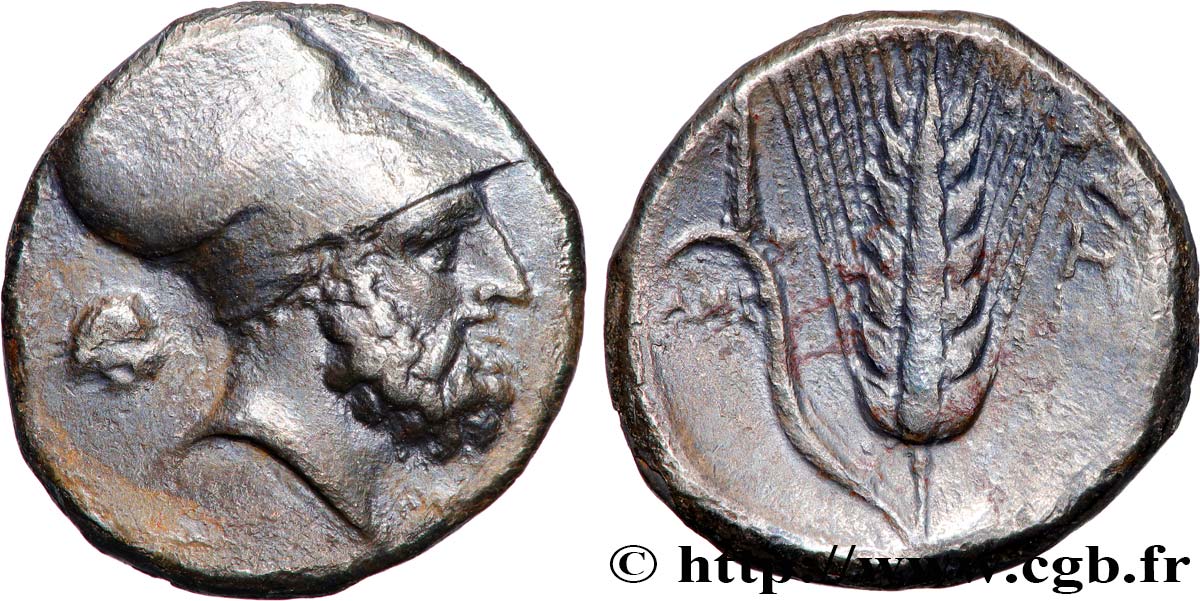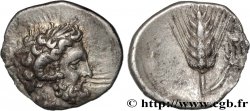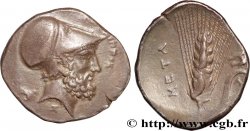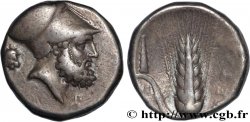bgr_874026 - LUCANIA - METAPONTION Nomos ou Didrachme
680.00 €
Количество
Добавить в корзину

Тип Nomos ou Didrachme
Дата: c. 330 AC.
Монетный двор / Город: Métaponte
Металл: silver
Диаметр: 20 mm
Ориентация осей монеты: 9 h.
Вес: 7,71 g.
Редкость: R2
Комментарии о состоянии
Monnaie centrée des deux côtés. Joli revers ainsi qu’un beau portrait, bien venu à la frappe. Usure régulière. Patine grise
Ссылки в каталоге: :
Лицевая сторона
Аверс: описание: Tête barbue et casquée de Leucippe à droite, coiffée du casque corinthien ; derrière, masque de lion.
Аверс: легенда: (AG).
Обратная сторона
Реверс: Описание: Épi de blé sur sa tige à gauche ; au-dessus, la massue d’Héraklès.
Реверс: легенда: META/ AMI.
Реверс: перевод: (de Métaponte).








 Cообщить об ошибке
Cообщить об ошибке Распечатать страницу
Распечатать страницу Отправить мой выбор
Отправить мой выбор Задать вопрос
Задать вопрос Consign / sell
Consign / sell
 Информация
Информация



